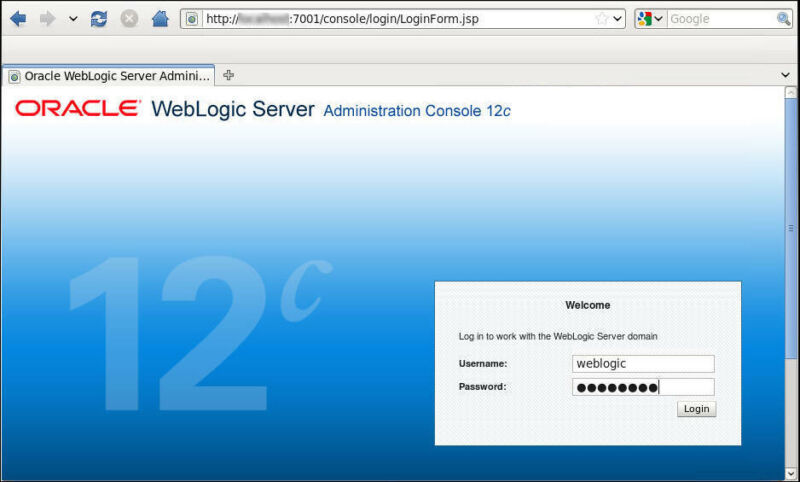
Attackers are targeting a recently patched Oracle WebLogic vulnerability that allows them to execute code of their choice, including malware that makes servers part of a botnet that steals passwords and other sensitive information.
WebLogic is a Java enterprise application that supports a variety of databases. WebLogic servers are a coveted prize for hackers, who often use them to mine cryptocurrency, install ransomware, or as an inroad to access other parts of a corporate network. Shodan, a service that scans the Internet for various hardware or software platforms, found about 3,000 servers running the middleware application.
CVE-2020-14882, as the vulnerability is tracked, is a critical vulnerability that Oracle patched in October. It allows attackers to execute malicious code over the Internet with little effort or skill and no authentication. Working exploit code became publicly available eight days after Oracle issued the patch.
According to Paul Kimayong, a researcher at Juniper Networks, hackers are actively using five different attack variations to exploit servers that remain vulnerable to CVE-2020-14882. Among the variations is one that installs the DarkIRC bot. Once infected, servers become part of a botnet that can install malware of its choice, mine cryptocurrency, steal passwords, and perform denial-of-service attacks. DarkIRC malware was available for purchase in underground markets for $75 in October, and it is likely still being sold now. PhD candidate Tolijan Trajanovski has more details here.
Other exploit variants install the following other payloads:
- Cobalt Strike
- Perlbot
- Meterpreter
- Mirai
The attacks are only the latest to target this easy-to-exploit vulnerability. A day after the exploit code was posted online, researchers from Sans and Rapid 7 said they were seeing hackers attempting to opportunistically exploit CVE-2020-14882. At the time, however, the attackers weren’t actually trying to exploit the vulnerability to install malware but instead only to test if a server was vulnerable.
CVE-2020-14882 affects WebLogic versions 10.3.6.0.0, 12.1.3.0.0, 12.2.1.3.0, 12.2.1.4.0, and 14.1.1.0.0. Anyone using one of these versions should immediately install the patch Oracle issued in October. People should also patch CVE-2020-14750, a separate but related vulnerability that Oracle fixed in an emergency update two weeks after issuing a patch for CVE-2020-14882.
